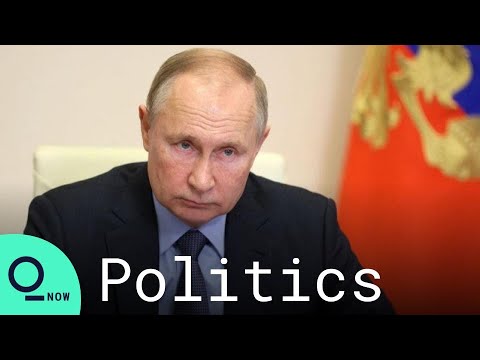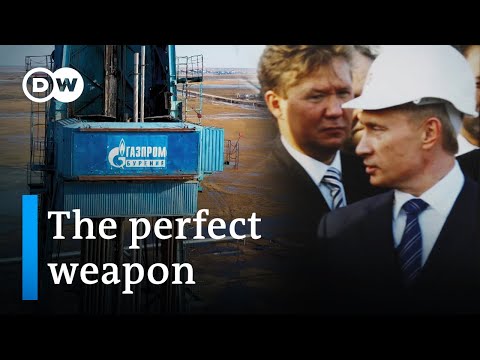How has Putin influenced media freedom in Russia?
Have you ever wondered how Vladimir Putin has influenced media freedom in Russia? As a researcher in the field, you may find yourself perplexed by the complex web of regulations, restrictions, and control mechanisms that the Russian government under Putin has implemented to shape the media landscape in the country. Let’s delve into this topic further by examining the ways in which Putin has exerted his influence over the media in Russia.
1. **State Control and Censorship**: One of the most significant ways in which Putin has influenced media freedom in Russia is through state control and censorship. The Russian government has implemented a series of laws and regulations that restrict freedom of speech and limit independent journalism. For example, the government has passed laws that allow for the blocking of websites deemed to contain “extremist” content, as well as laws that require bloggers to register with the government.
2. **Media Ownership and Consolidation**: Putin’s government has also exerted influence over the media in Russia through ownership and consolidation. Many media outlets in the country are either directly owned by the state or by individuals with close ties to the government. This has led to a lack of diversity in the media landscape and has allowed the government to control the narrative and shape public opinion.
3. **Harassment and Intimidation of Journalists**: Another tactic used by Putin to influence media freedom in Russia is the harassment and intimidation of journalists. Reporters who are critical of the government or who investigate sensitive topics are often targeted with threats, physical violence, and even imprisonment. This climate of fear has led to self-censorship among journalists and has stifled investigative reporting in the country.
4. **Propaganda and Disinformation**: Putin’s government has also been accused of using propaganda and disinformation as tools to influence public opinion in Russia. State-controlled media outlets often disseminate false information and biased reporting to shape the narrative in favor of the government. This has created a media environment in which objective reporting is increasingly rare, and trust in the media is low.
5. **Digital Surveillance and Control**: In addition to traditional forms of media control, Putin’s government has also implemented digital surveillance and control measures to monitor and censor online content. The government has passed laws that require internet service providers to store user data and to block access to websites deemed to contain “extremist” content. This has had a chilling effect on online expression and has further restricted media freedom in the country.
In conclusion, Vladimir Putin has exerted significant influence over media freedom in Russia through a combination of state control, censorship, harassment of journalists, propaganda, and digital surveillance. The media landscape in Russia is highly restricted, with few independent voices able to operate freely. As a researcher in the field, it is crucial to understand the ways in which Putin’s government has shaped the media environment in the country and to advocate for greater press freedom and protection of journalists’ rights.
Examining Media Freedom in Russia: Is the Kremlin’s Grip on Journalism Tightening?
Examining Media Freedom in Russia: Is the Kremlin’s Grip on Journalism Tightening?
Have you ever wondered how **Putin** has influenced media freedom in Russia? The answer to this question is complex and multifaceted. Under Putin’s leadership, the **Kremlin** has implemented various measures to control and manipulate the media landscape in Russia. One of the most significant ways in which Putin has influenced media freedom is through the use of **state-owned media outlets**. These outlets are often used as propaganda tools to promote the government’s agenda and suppress dissenting voices. Additionally, **journalists** who are critical of the government are often **harassed, intimidated, or even jailed**. This climate of fear and censorship has led to **self-censorship** among journalists, further limiting media freedom in the country.
Furthermore, Putin has also cracked down on **independent media outlets** in Russia. Many independent newspapers, websites, and television stations have been **shut down** or **forced to operate under strict government control**. This has severely restricted the ability of journalists to report on issues that are critical of the government. As a result, **freedom of the press** in Russia has been **severely curtailed**, leading to a lack of **transparency** and **accountability** in the country. In conclusion, Putin’s influence on media freedom in Russia has been significant, with the Kremlin’s grip on journalism tightening in recent years. It is essential for **democracy** and **freedom of speech** that these trends are **monitored** and **challenged** to ensure that the Russian people have access to **accurate** and **unbiased** information.
The Putin Effect: Analyzing the Impact of Russia’s President on the Nation
Have you ever wondered how **Putin** has influenced media freedom in **Russia**? Let’s delve into this complex issue and analyze the impact of **Russia’s President** on the nation’s media landscape.
**1. Tightening Control:** Since **Putin** came to power, there has been a noticeable tightening of control over the media in **Russia**. State-owned media outlets dominate the airwaves, while independent news organizations face censorship and pressure to self-censor their content to avoid repercussions. This has created a stifling atmosphere for journalists and media professionals, limiting their ability to report freely on important issues.
**2. Crackdown on Dissent:** **Putin**’s government has cracked down on dissenting voices in the media, leading to the closure of independent news outlets and the harassment of journalists critical of the regime. This has had a chilling effect on freedom of speech in **Russia**, with many journalists resorting to self-censorship to avoid retaliation from the authorities. As a result, the media landscape in **Russia** has become increasingly homogenized, with only pro-government narratives being allowed to flourish.
In conclusion, **Putin**’s influence on media freedom in **Russia** has been profound, leading to a significant erosion of freedom of speech and press freedom in the country. The **Kremlin**’s tight control over the media has stifled dissenting voices and limited the ability of journalists to report independently. As **Russia** continues to grapple with issues of media freedom, it is essential to understand the impact of **Putin**’s policies on the nation’s media landscape and the implications for democracy and civil society.
The Kremlin’s Grip: An Inside Look at Russia’s Social Media Regulations
Are you curious about how Putin has influenced media freedom in Russia? Let’s dive into the intricate web of regulations that shape the landscape of social media in the country. Here are some key insights into “The Kremlin’s Grip: An Inside Look at Russia’s Social Media Regulations”:
– **Tightening the Reins**: Under Putin’s leadership, Russia has implemented strict regulations on social media platforms, aiming to control the flow of information and suppress dissenting voices. *These regulations empower the government to block online content deemed to be extremist or harmful to the state*, giving them significant control over what the public can access online.
– **Cracking Down on Critics**: Putin’s government has used these regulations to silence critics and opposition figures, targeting them with fines or even imprisonment for expressing dissenting views online. *This has created a climate of fear and self-censorship among social media users in Russia*, limiting the diversity of opinions and stifling free speech.
– **State-Run Social Media**: In addition to imposing regulations on existing social media platforms, the Russian government has also sought to promote state-controlled alternatives. *Platforms like VKontakte, which is widely used in Russia, have faced pressure to comply with government censorship demands*, further consolidating the Kremlin’s grip on online communication.
– **Monitoring and Surveillance**: The Russian government has ramped up its monitoring and surveillance of social media platforms, using sophisticated technology to track online activities and identify potential threats to national security. *This has raised concerns about privacy and freedom of expression*, as users are increasingly wary of sharing their thoughts and opinions online.
– **International Implications**: Russia’s social media regulations have not only impacted its own citizens but have also raised concerns internationally. *Critics argue that these regulations set a dangerous precedent for other countries seeking to control online discourse*, highlighting the broader implications of Putin’s influence on media freedom.
In conclusion, the Kremlin’s grip on Russia’s social media regulations is a complex and multifaceted issue that raises important questions about freedom of expression, censorship, and government control. *As Putin continues to tighten his hold on online communication, the future of social media in Russia remains uncertain*, with far-reaching implications for both domestic and international audiences.
**Frequently Asked Questions:**
**- How has Putin influenced media freedom in Russia?**
**- What are some examples of media censorship under Putin’s regime?**
**- Has there been any pushback from journalists and media outlets in Russia?**
**- How does the lack of media freedom impact Russian society and democracy?**
In conclusion, Vladimir Putin’s influence on media freedom in Russia has been significant, with tight control and censorship over the press. This has led to a lack of transparency and accountability in the government, as well as limited access to unbiased information for the Russian population. Despite some resistance from journalists and media outlets, the restrictions on freedom of speech continue to have a detrimental impact on democracy in the country. It is essential for the international community to monitor and address these issues to uphold democratic values and ensure a free press for all.



I think Putins control over media in Russia is necessary for stability.
I think Putin is actually improving media freedom in Russia, not tightening it!
I think Putins control over media in Russia is necessary for stability.
I think Putins media control is actually a good thing for stability.
I think Putins media control is justified for national security. Lets discuss!